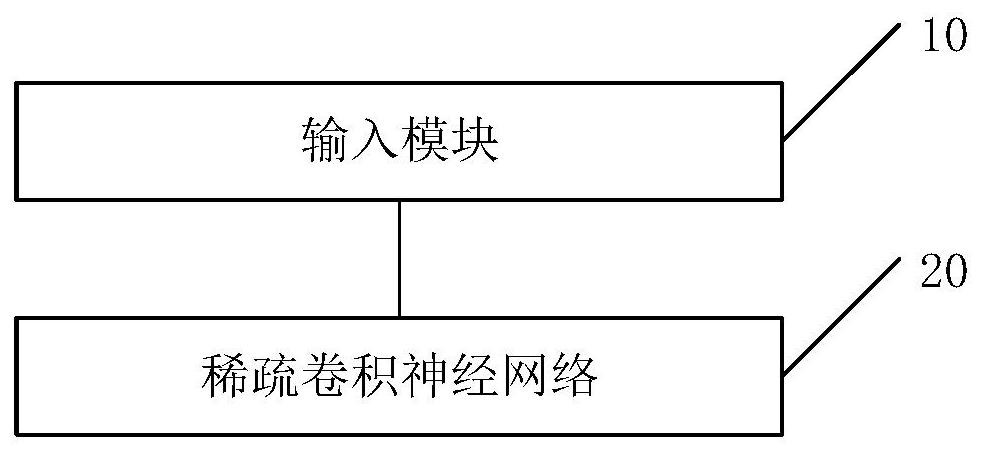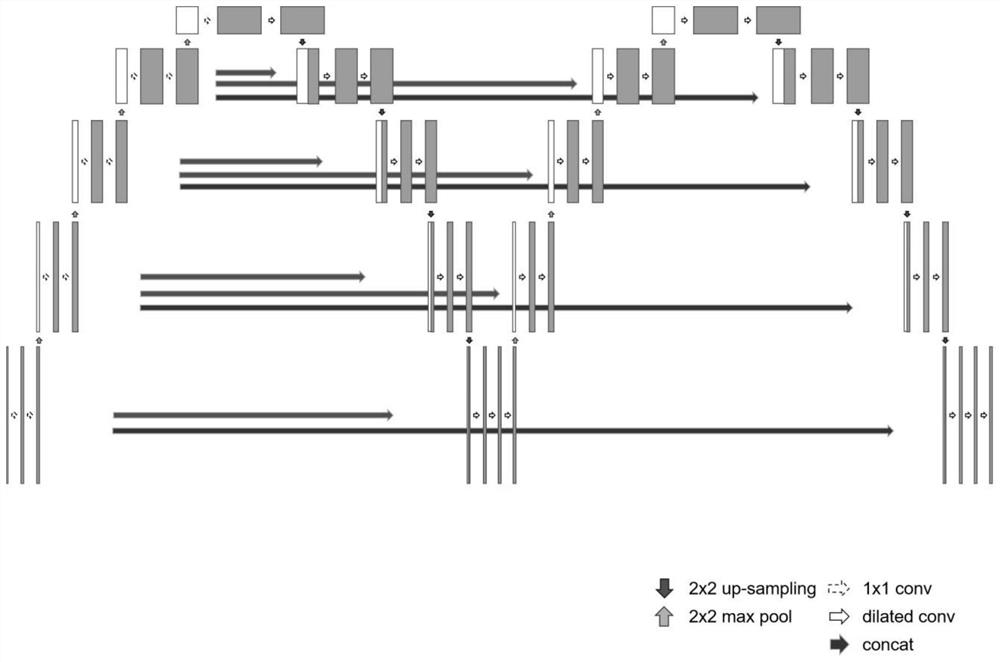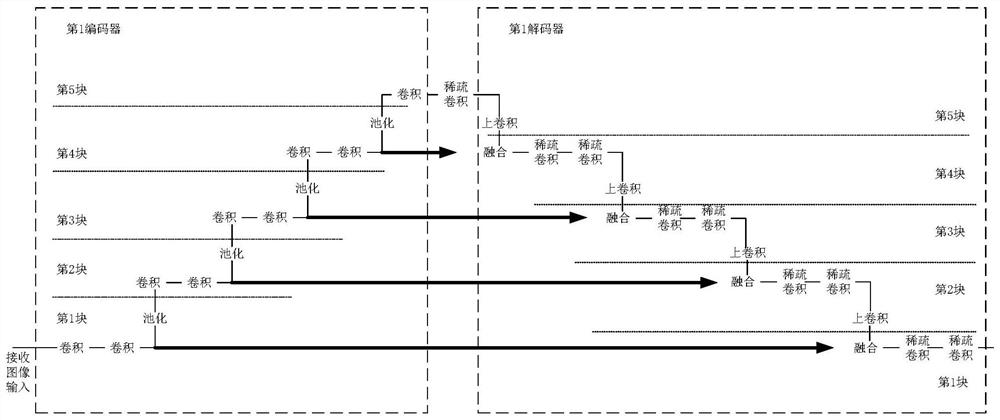Method, system, device and storage medium for image recognition of liver and bile ducts and stones
An image recognition and hepatic bile duct technology, applied in image analysis, image enhancement, image data processing, etc., can solve the problems of small pixel area and unsatisfactory effect, etc., to improve the degree of refinement, reduce loss, and increase convergence speed. Effect
- Summary
- Abstract
- Description
- Claims
- Application Information
AI Technical Summary
Problems solved by technology
Method used
Image
Examples
Embodiment Construction
[0045] The core of the present invention is to provide an image recognition system for hepatic ducts and stones, which effectively preserves edge details through small convolution kernels, and avoids the loss of primary features through the fusion of feature maps, so it can more effectively identify hepatic ducts and stones. Perform image recognition to better assist doctors in their treatment.
[0046] In order to enable those skilled in the art to better understand the solution of the present invention, the present invention will be further described in detail below in conjunction with the accompanying drawings and specific embodiments. Apparently, the described embodiments are only some of the embodiments of the present invention, but not all of them. Based on the embodiments of the present invention, all other embodiments obtained by persons of ordinary skill in the art without making creative efforts belong to the protection scope of the present invention.
[0047] Pleas...
PUM
 Login to View More
Login to View More Abstract
Description
Claims
Application Information
 Login to View More
Login to View More - R&D
- Intellectual Property
- Life Sciences
- Materials
- Tech Scout
- Unparalleled Data Quality
- Higher Quality Content
- 60% Fewer Hallucinations
Browse by: Latest US Patents, China's latest patents, Technical Efficacy Thesaurus, Application Domain, Technology Topic, Popular Technical Reports.
© 2025 PatSnap. All rights reserved.Legal|Privacy policy|Modern Slavery Act Transparency Statement|Sitemap|About US| Contact US: help@patsnap.com



